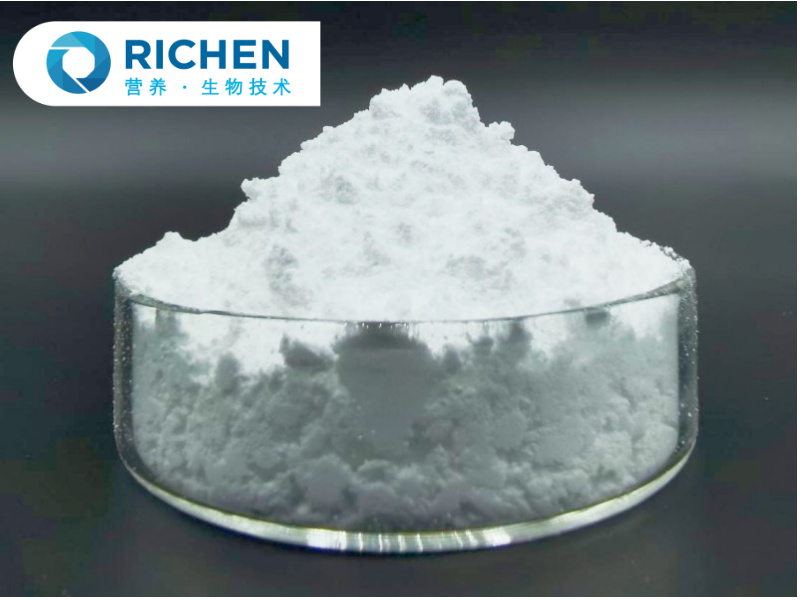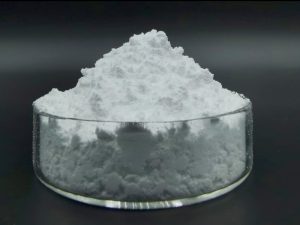Description

CAS No. : 14281-83-5;
Molecular Formula: C4H8N2O4Zn;
Molecular Weight: 213.5;
Standard: GB1903.2-2015;
Product code: RC.03.06.191954
Features
Stable
Zinc Bisglycinate is stable throughout the intestinal tract, making it more bioavailable. Other common sources of zinc can be chemically reactive with other components within a product. Zinc salts can ionize and react with vitamins such as vitamin C, vitamin A and vitamin B6, increasing their rate of degradation in a formulation. Zinc Bisglycinate is ideal as a source of zinc for vitamin and mineral formulations because the glycine molecules protect the vitamins being degraded by zinc. Zinc Bisglycinate could also be a good option for milk fortification as the glycine molecules protect the fat from oxidation (off-flavours caused by oxidation is a problem often reported with zinc fortification).
Bioavailable
Zinc Bisglycinate is highly bioavailable and has even been shown to be more bioavailable than zinc picolinate.
Soluble
Zinc Bisglycinate is freely soluble in water, making it much more bioavailable than non-soluble sources of zinc (such as zinc oxide). Its solubility also makes it suitable for a wider range of product applications.
Application
Zinc bisglycinate is a chelated mineral that offers greater solubility and dissolution than traditional zinc oxide and it has a higher bioaccessbility with its wider application in soft capsule, capsule, tablets, prepared milk powder, beverages.
Parameters







Reviews
There are no reviews yet.